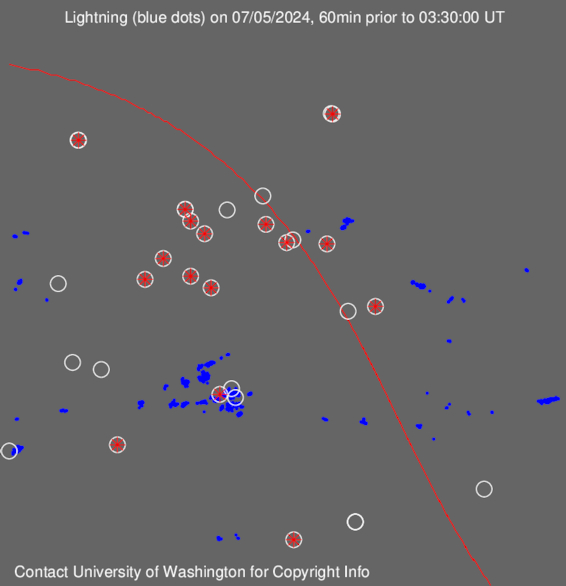-
توجه: در صورتی که از کاربران قدیمی ایران انجمن هستید و امکان ورود به سایت را ندارید، میتوانید با آیدی altin_admin@ در تلگرام تماس حاصل نمایید.
You are using an out of date browser. It may not display this or other websites correctly.
You should upgrade or use an alternative browser.
You should upgrade or use an alternative browser.
تجزیه و تحلیل وضعیت جوی در سال زراعی 93-94 /فصل اول( مهر- آبان-آذر)
- شروع کننده موضوع heaven1
- تاریخ شروع
- وضعیت
- موضوع بسته شده است.
وحید - مشهد
کاربر ويژه
وحید - مشهد
کاربر ويژه
بارشهای احتمالی تا شب از دید GFS


وحید - مشهد
کاربر ويژه
mahmood600
کاربر ويژه
دهکده ساحلی انزلی


mahmood600
کاربر ويژه
جاده نور محمود اباد مازندارم هم اکنون


mahmood600
کاربر ويژه
جاده بابل بابلسر هم اکنون


Amir Mohsen
متخصص بخش هواشناسی
سلام و صبح بخیر


Amir Mohsen
متخصص بخش هواشناسی
Amir Mohsen
متخصص بخش هواشناسی
وضعیت فعلی NAO و AO و چشم انداز این شاخص ها تا اخر ماه سپتامبر


حالا مشخص میشه که چرا بارشها در شمال غرب بیشتر از انتظارها بود!


حالا مشخص میشه که چرا بارشها در شمال غرب بیشتر از انتظارها بود!
Amir Mohsen
متخصص بخش هواشناسی
New study reveals half of Earth's water is older than the Sun
| Bec Crew |
| Friday, 26 September 2014 |
| Half the water on Earth and much of the water in the Solar System is older than the Sun, astronomers have discovered. 
The formation of the Solar System. Image: Bill Saxton, NSF/AUI/NRAO This new finding, led by Ilsedore Cleeves from the University of Michigan in the US, suggests that our water is significantly older than we’d ever imagined, and that water should be plentiful in other planetary systems too. The discovery was made through the use of new computer simulations, developed by Cleeves and her team, of the early Solar System. “While we can't go back in time to see the the Sun and Solar System at its formation, the wonderful thing about the vastness of the galaxy is that we can observe many other young Sun-like stars that are currently forming or have recently formed,” Cleeves told Becky Ferreira at Motherboard. "By studying these astrophysical objects using high power telescopes and numerical techniques, we can use this information to model the protoplanetary disk environment in great detail.” The protoplanetary disk environment is where planets form. Containing large amounts of dust and gas particles that resulted from the collapse of an interstellar star-founding cloud, the protoplanetary disk and the new star next to it will rotate together, and the debris surrounding the disk will form new planets. Publishing their results in the journal Science today, Cleeves and her team modelled the ‘heavy water’ in ice that was floating in the protoplanetary disk that formed our Solar System. Heavy water contains an isotope of hydrogen called deuterium, and it’s found in all water in the Solar System, including that on planets, icy moons, and inside comets and meteorites. The team simulated how much heavy water would have formed during the birth of the Solar System to find that it was much less than expected. So then they wanted to figure out if the high levels of deuterium found in this water was passed on from preexisting interstellar gas, or if it was the result of chemical reactions from the protoplanetary disk as its debris formed several planets. “The short answer was that disks did not synthesise heavy water in abundance, and so could not have been the original source of our water,” Cleeves told Ferreira. “This work implies that much of the Solar System's water ice was inherited from the original birth environment of the Sun in very dark, cold interstellar gas.” "In other words, much of the water that flows on Earth is older than the planet itself, as well as its host star. Its a mindboggling notion, especially when extended to other exoplanets and stars,” says Ferreira at Motherboard. According to Aviva Rutkin at New Scientist, the team calculates that half the water on Earth and maybe all of the water found in comets came from this ancient source. The team will continue their investigation, looking into what else might have been delivered by materials that existed before the Solar System’s formation. |
Amir Mohsen
متخصص بخش هواشناسی
یک لکه بزرگ ابر هوا رو ناگهانی تاریک کرد .انشاءالله که در ساعات آینده افزایش ابرها در انتها به وقوع بارش اولین باران پاییزی هم بشه.
Amir Mohsen
متخصص بخش هواشناسی
دقیقا همین یه ذره ابر بالای سر منه


Amir Mohsen
متخصص بخش هواشناسی
آپدیت هفتگی مدل اسمبل ecmwf هم لحظاتی پیش صادر شد
- وضعیت
- موضوع بسته شده است.









